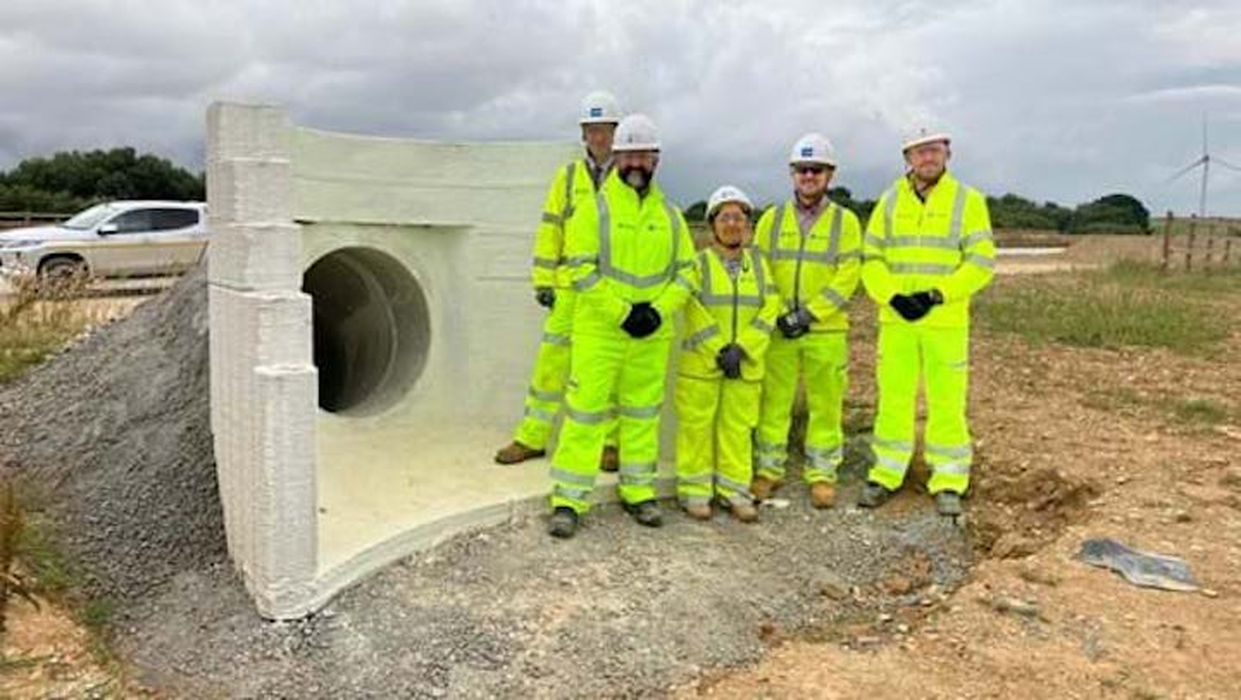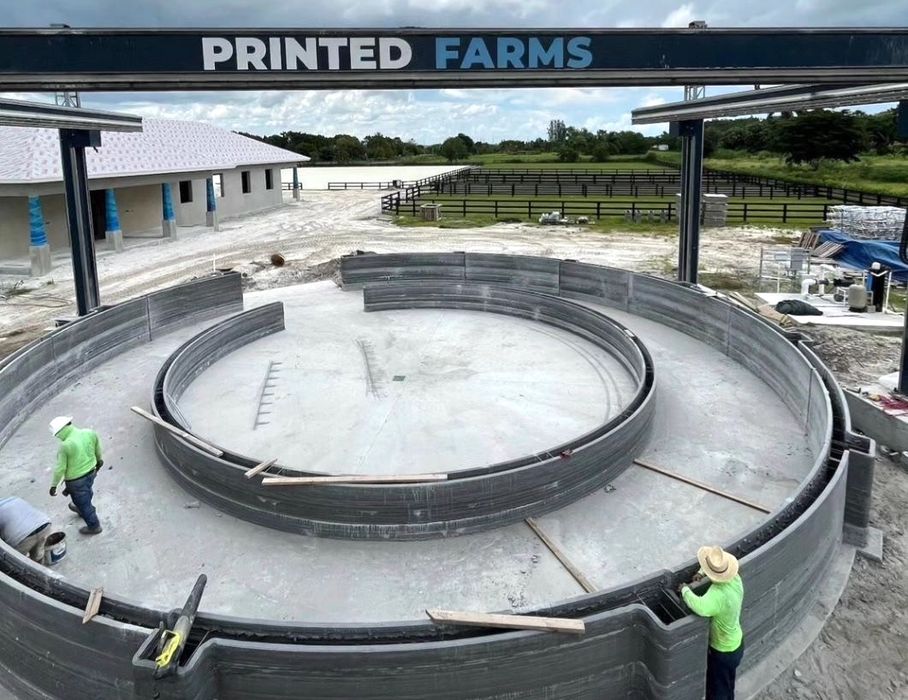
Construction 3D printing is growing, and two recent projects indicate where the technology could be headed.
Construction 3D printing is the science of 3D printing concrete structures, typically for outdoor use, such as buildings, aesthetic adornments, or large statues. The technology involves extruding some concrete-like material with a moving print head.
Several providers offer equipment that can do this, which are now being slowly adopted by new and existing construction companies around the world.
3D Printed Headwall
One of the projects is in the UK, where researchers from Cambridge are working with the UK’s National Highways to produce 3D printed concrete headwalls.
A headwall is a concrete structure used in roadways to support for piping when water must flow under the road. These not only keep the piping from moving, but also protect the road from damage during flooding.
Typically headwalls are simply cast in concrete with some metal rebar for reinforcement. However, the new approach involves using construction 3D printing technology to produce headwalls without the need for metal reinforcement, nor any requirement for typical concrete formworks.
Instead, the researchers devised a way to 3D print the headwall using a different geometry that provides sufficient strength merely from its shape. These headwalls can be 3D printed in only an hour, and weigh 2.3 tonnes.
Not only can the headwalls be produced quickly, but they also use less material than conventional headwalls. This is notable as it not only saves money, but also reduces the use of cement, which is one of the leading sources of atmospheric CO2 pollution causing climate change.
3D Printed Equestrian Barn

The second project is a barn being 3D printed in Florida by Printed Farms. They have partnered with COBOD on the project, and intend to produce what will be the world’s largest 3D printed building.
The building is to be a “luxury equestrian barn” and should have a floor space of 10,678sf (992sm), and that’s not small any way you measure it. The structure is to be completed in August.
Note that this is only part of the project — the concrete part. The rest of the structure will be built using conventional trades, such as HVAC, plumbing, electrical, etc.
Printed Farms use of COBOD’s BOD2 technology on this project is important, as the 3D printer’s design allows for scaling up by extending the motion system rails. That could be what’s happening on this project.
These projects point out two important trends in construction 3D printing that will inevitably increase in coming years:
The use of the technology on unexpected applications
The scaling up of the technology to ever-larger projects
It may be that years from now the construction 3D printing industry could be the largest applications of the technology.
Via National Highways and Printed Farms
